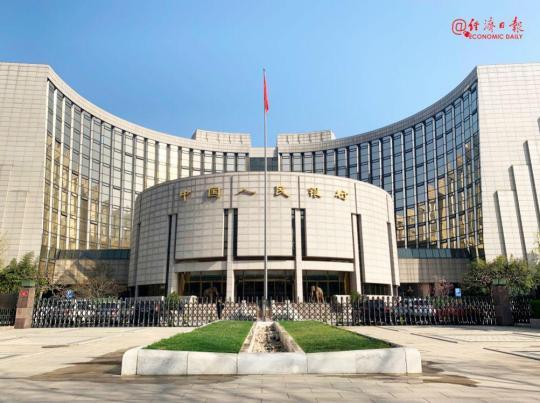The international financial crisis is coming? Can the Chinese economy sustain? Official statement
At present, the global epidemic situation is developing rapidly, and the number of confirmed cases is increasing, reaching an astonishing 1 million cases! Many countries in the world have halted production and production, flights have been suspended, and the economy has been suspended.
Many people worry that if the epidemic is not effectively controlled, will it trigger an international financial crisis? Will the crisis affect our country? In order to deal with the crisis, what other tools are in the policy toolbox of relevant departments ...
At today's press conference of the State Council's joint defense and joint control mechanism, the heads of relevant ministries and commissions answered questions from reporters from the Economic Daily.
Question 1: The epidemic is spreading around the world. Will the impact exceed the 2008 international financial crisis?
It has not been exceeded yet, but it may be negative growth throughout the year
Liu Guoqiang, deputy governor of the People's Bank of China, believes that the impact of the epidemic has not exceeded the 2008 international financial crisis.
For example, the stock market. Since February 24, the stock markets of various countries have fallen by about 25%. During the 2008 financial crisis, the decline was about 50%. 50% is the standard of the crisis. How is it going to fall 25%? This is not easy to say.
The International Monetary Fund recently stated that the global economy may experience negative growth in 2020, and the degree of recession may exceed the 2008 international financial crisis.
Liu Guoqiang believes that this statement is relatively clear, but it also uses a word called "possible", so it is very uncertain. At the same time when the impact is large, we must also see that various countries have issued a large hedging policy. In addition, various countries have also increased their efforts to prevent and control the epidemic, and international cooperation has also increased. One step also requires close tracking and altitude.
Question 2: Affected by the epidemic, what will happen to China ’s first quarter economic data
The data in the first quarter will certainly not look good, but in March has improved significantly
Liu Guoqiang believes that the data for the first quarter has not yet come out. From a conventional point of view, such as the standard of no epidemic situation, the data will definitely not look good, but we must also see that from the marginal changes, such as from March and Looking at the comparison in February, March is a clear improvement.
Therefore, the impact of the epidemic on China's economy is temporary, and the Chinese economy will continue to show strong resilience. In addition, we have abundant tools and sufficient policy space to stabilize economic growth.
Question 3: If the epidemic continues, what policy space do we have?
Directional RRR cuts will continue to be implemented
The person in charge of the relevant department said that from the perspective of fiscal policy, a proactive fiscal policy should be more active and promising, appropriately increase the fiscal deficit rate, issue special national bonds, and increase the size of local government special bonds. Special bonds issued by local governments of a certain scale in advance can be implemented into the project as soon as possible, and it is expected that the physical workload can be formed as soon as possible and play an effective role in driving the economy.
From the perspective of monetary policy, we must put the support for the recovery of the real economy in a more prominent position, continue to make good use of the 300 billion yuan special re-loan, continue to make good use of the 500 billion yuan special re-loan rediscount policy, and at the same time implement the inclusive renewal Loan re-discounting The new 1 trillion yuan re-loan re-discounting. In addition, it is necessary to implement targeted reduction of standards and actively promote LPR reform.
Question 4: SMEs have solved a lot of employment, and now they have a hard time, what should they do?
Fully support small and micro enterprises cash flow is not broken
Xu Hongcai, deputy minister of finance, believes that the ministry of finance fully supports small and micro enterprises in keeping the cash flow unbroken, helping them to overcome difficulties. From the perspective of fiscal policy, a series of policies have been introduced, including taxation, discounts, and so on. This includes:
(1) Requiring the national financing guarantee fund to increase the scale of re-guarantee business in 2020 by at least 400 billion yuan;
(2) The government financing guarantee industry is required to halve the fee and reduce the comprehensive financing guarantee fee rate to less than 1%;
(3) Allow qualified business start-up loans to be extended. It is expected that in 2020, 1 million individual entrepreneurs and 10,000 small and micro enterprises will be newly added.
Question 5: This year our government debt will increase, will there be risks?
The size of the debt has increased, but the risk is manageable
Xu Hongcai said that in general, the scale of China ’s government debt has increased somewhat in recent years, but the increase is manageable.
As of the end of 2019, China's local government debt was 21.31 trillion yuan. If the local government debt level is measured by the debt rate (debt balance / comprehensive financial resources), the local government debt rate in 2019 is 82.9%, which is lower than the internationally accepted warning standard.
What if you follow other standards?
According to the GDP data released by the National Bureau of Statistics, the debt ratio of national government debt (debt balance / GDP) is 38.5%, which is lower than the 60% warning line of the European Union and lower than the level of major market economies and emerging market countries.
Therefore, the current level of government debt risk in China is generally controllable.

